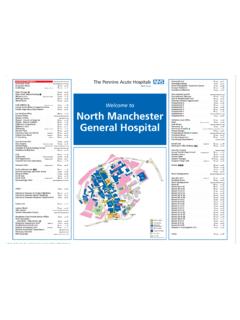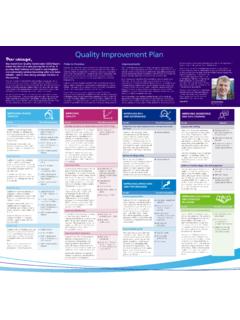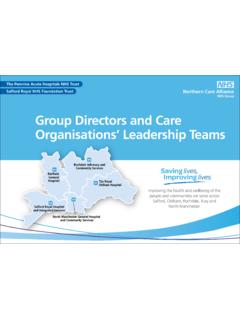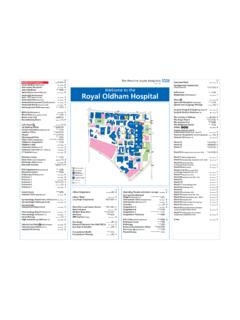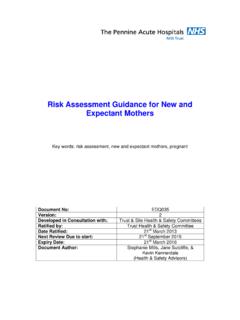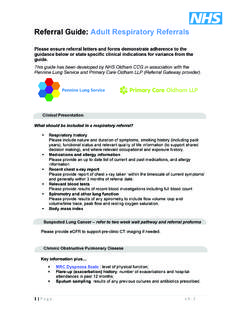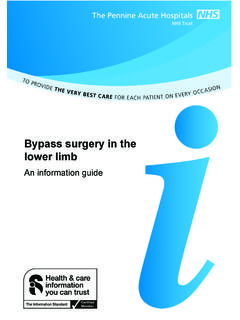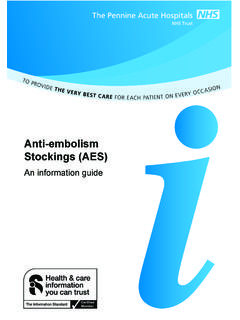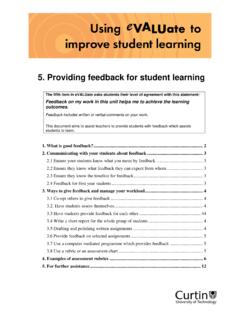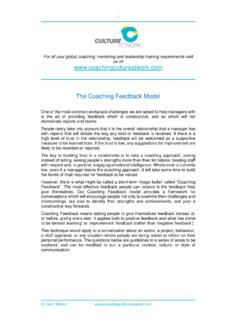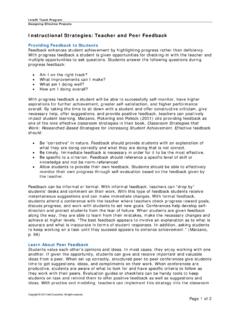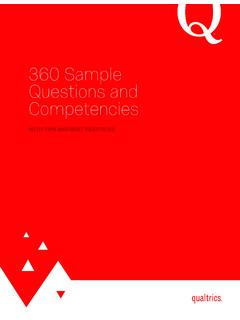Transcription of Effective Feedback Toolkit
1 Page 1 of 11 Contribution Framework Achieving high performance one conversation at a time Delivering Effective Feedback Page 2 of 11 Contents Page Contents Page .. 2 What is Effective Feedback ? .. 3 Why is Effective Feedback important? .. 3 When should we give Feedback ? .. 4 Feedback in the CF2 Cycle .. 4 Principles of Effective Feedback .. 5 Common pitfalls to avoid when giving Feedback .. 7 Feedback Models .. 7 Situation-Behaviour-Impact (SBI) Feedback Model .. 7 The BOOST Feedback Model.
2 8 The DESICA Feedback Model .. 8 The Feedback Planner Tool .. 9 Additional Resources .. 11 E-Learning .. 11 Page 3 of 11 What is Effective Feedback ? Effective Feedback is Feedback that has the desired effect whilst maintaining the respect, confidence and dignity of all parties. By giving Effective Feedback a CF2 Coach can quickly bring about beneficial change in an individual or team. Why is Effective Feedback important? The benefits of giving Effective Feedback include: Self-awareness Improve performance Bring about a change in behaviour Personal development Conflict resolution (prevention) Improved teamwork Better relationships Confirmation of strengths Highlighting areas for development Eminent psychologist Albert Bandura has conducted extensive research demonstrating the impact of Effective Feedback on improving performance.
3 Bandura showed that providing and individual with Feedback on where they can improve, as well as meaningful and realistic goals for improving has the biggest impact on improving performance. See the goal setting Toolkit and master classes to support setting meaningful goals. 25% 25% 60% 20% 0%10%20%30%40%50%60%70%Goals OnlyFeedback OnlyGoals &FeedbackControl Group% Increase in Performance Page 4 of 11 When should we give Feedback ? Feedback should not just be given when there is a problem, positive and constructive Feedback is equally important!
4 Feedback should be given when: Performance level and progression is greater/ slower than expected Competence level and growth are higher/ lower than expected Behaviour is role modeling/inappropriate and above/below standard Feedback in the CF2 Cycle He only wants to see me when I ve done something wrong! End of Quarter 3 1:1 Contribution Discussion Feedback Indicators End of Quarter 2 1:1 Contribution Discussion Feedback Indicators End of Quarter 1 1:1 Contribution Discussion Feedback Indicators Regular on-going Tracking & Feedback / coaching Conversations Start of Q1 End of Q4 1:1 Annual Discussion Feedback Indicators Page 5 of 11 Principles of Effective Feedback Be specific Be clear about which behaviour you are referring to and provide some evidence for your comments.
5 General phrases like You were good or that was dreadful are too broad to be of use to the receiver. Be constructive constructive Feedback can be either positive or negative and it always provides information, offers options or encourages development. You made several constructive comments at the meeting, but could be even more Effective if you also gave support to the ideas of others Describe don t be judgemental Talk about what you actually saw or heard and describe the impact. Don t use phrases like I thought that was poor That wasn t good enough Begin with a positive We are more likely to hear a constructive comment if a strength is identified first.
6 The recipient is also more likely to act if they believe strengths as well as limitations have been identified. Own the Feedback Use phrases like I or The impact on me or In my opinion . The Feedback is your view and the receiver needs to understand that. Don t give Feedback you cannot personally own or have not actually observed. Don t try to distance yourself from your opinion by generalising. EG The view in the office is that you always talk over other people Give Feedback on things the receiver can do something about Don t criticise or comment on things over which the receiver has no control.
7 If you were a bit taller you might have more personal impact Always focus comments on the behaviour you have observed not the person. EG don t use phrases like You are the kind of person Prioritise It is difficult for most of us to receive Feedback , let alone deal with too many issues however well intentioned. Prioritise the issues you think the other person will benefit from most. No Bumper bundles or phrases like ..and another thing Positive intent Appreciate as the giver (and receiver) that the intention is to be beneficial.
8 That isn t always how it lands. Clarify this up front and look for signs that your positive intent has had a positive impact, not a negative one. Clarify Ask the individual to play back to you what they have heard and understood. This will give you the opportunity to clarify any misunderstandings or misinterpretation Page 6 of 11 Good and Bad Feedback Examples I found how you said it sounded a little critical NOT You sounded Critical I think it s the last 5 slide of the presentation that need more detail NOT I want you to change the presentation When you went through the report in the meeting this morning I felt you seemed a little negative NOT When you went through the report last week I felt
9 You seemed a little negative I loved the article. You re getting really good at writing them. NOT You re making fewer mistakes these days I really like your ideas, very inspirational, what else could we look at too? NOT What else could we do instead? I found your performance to be outstanding. I also feel you have potential to be even better. Let s focus on a couple of areas you might be able to enhance even more NOT I think you can do better. What else can you do? I think you re a great manager. I like how you have bonded with your team and they seem to be very inspired by you.
10 Clara seems to need a bit of extra support as she tends to take a little longer to adjust than the others. How do you think you could do to inspire her a little more? NOT You re not motivating Clara effectively Questions for reflection: What is the difference between the good and bad Feedback for each example? Page 7 of 11 Common pitfalls to avoid when giving Feedback Being too vague and not citing specific examples Not keeping it short and focused Delivering ultimatums or threats Not coming prepared Only giving negative Feedback Doing all the talking All these seem like common sense, but it s easy for these conversations to turn into venting sessions or become side-tracked by emotions.
